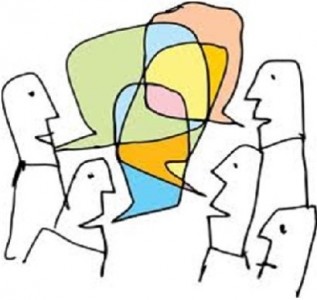Widgetized Section
Go to Admin » Appearance » Widgets » and move Gabfire Widget: Social into that MastheadOverlay zone
Running Our Mouths, and Running Our Government: Citizen’s Halls in Mongolia
The views expressed are those of the author and do not necessarily reflect the views of ASPA as an organization.
By Maggie Callahan
April 3, 2019

Mongolia had virtually no historical experience with self-governance until 1991 as a former Soviet state with a longstanding period of Chinese imperialism beforehand. Establishing the habits and attitudes of democracy, therefore, is an essential part of the country’s ongoing democratic development. Democracy and its deliberation, participation and consensus-building are alien to the vast majority of Mongolians, but Citizen’s Halls are a government initiative designed to change Mongolia’s historical condition.
Citizen’s Halls are a government program dating back to 2009. These halls are devoted to considering and incorporating citizens’ suggestions into policy and governmental decisions in an effort to consolidate and secure this young democracy. Each meeting focuses on one policy issue and allows citizens to participate directly in discussions of grave public concern.
These halls bring together legislators, drafters of policy, and citizens. Each segment of policymaking is allowed speaking time at the Citizen’s Hall. All citizens are allowed to participate in a discussion on a topic which is posted three weeks before the hall is to be held by governmental officials. Five days before the scheduled talk, citizens who wish to participate and desire to speak to officials coordinating the event are required to send a notification. Citizens need not participate by attending the event in person because post, fax and email submissions are accepted through a well-publicized Citizen’s Hall website. Citizens who do participate in person are allotted three to five minutes to present their position.
The first Citizen’s Hall topic of discussion was the freedom of the press. This discussion began on January 10, 2010. 32 Citizen’s Halls were held throughout the country in which 267 proposals were introduced from over 2,000 citizens. Although no citizen’s proposal passed through the legislative process, policymakers took the information collected from these Citizen’s Halls and formed laws in accordance with the vast consensus of citizens and policymakers.
Following this initial meeting, 30 discussions have been held regarding nine different policy areas. In each Citizen’s Hall, a facilitator is trained to moderate and guide discussion. Tolerance and respect are emphasized as virtues, and facilitators are not allowed to censor information or speeches based on their content alone. Following each meeting, the media broadcasts the positions presented on television, radio and the written press.
Many changes in Mongolian law can be traced back to citizen input through Citizen’s Hall meetings. State budget and formal standards for journalistic ethics have been informed by citizens’ opinions and presentations at theses Citizen’s Hall meetings. The most notable change, however, has been citizens’ and legislators’ attitudes towards the validity of public participation in forming and enacting policy. This area was historically reserved for autocrats and their modern manifestation in centralized authorities and policymaking elites. However, it is now perceived as an area needing innovative and meaningful input from citizens.
These Citizen’s Halls are far from perfect. The meetings are held near the capitol, which precludes participation from rural communities. The meetings remain unfunded and have yet to pass a policy that was introduced entirely by citizens. These meetings, however, are a critical first step in establishing the habits and respect that self-governance requires of its citizens and elected officials. Mongolia’s Citizen’s Halls are a reminder that citizens running their mouths is an essential first step in running their government.
To learn more about this case, visit https://participedia.net/en/cases/mongolias-citizens-hall. To read about other innovative applications of public participation visit, www.participedia.net.
Author: Maggie Callahan is a master’s student of public diplomacy at Syracuse University and a graduate assistant for the Participedia Project at the Maxwell School of Citizenship and Public Affairs. She holds a bachelor’s in political science and economics from Mercer University and has worked in Georgian and Moroccan nongovernmental organizations and the American government. Follow her on Twitter: @laissezmaggie


Follow Us!